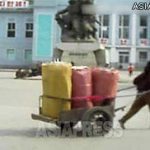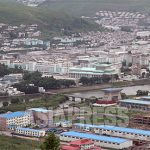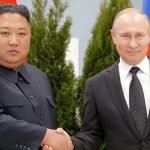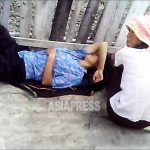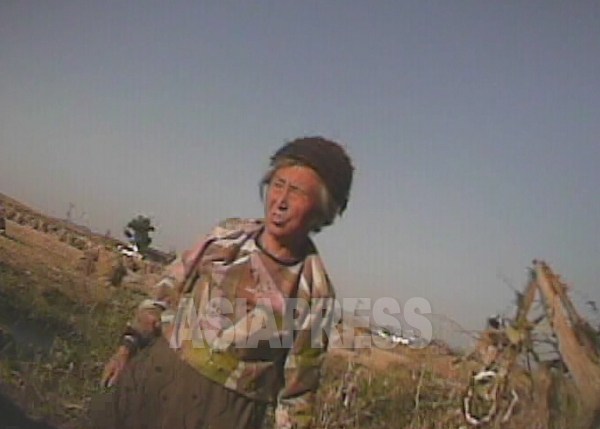
As we have reported on North Korea from inside the country, the lives of North Korea's vulnerable classes have always been of interest to ASIAPRESS. In-depth interviews we recently conducted with two women living in Yanggang Province revealed the shocking circumstances faced by the elderly in North Korea. The interviews of the two female reporting partners provide an opportunity to shed light on the miserable lives of the elderly, who – following the outbreak of the COVID pandemic – have been neglected by the state and abandoned by their families. (KANG Ji-won / JEON Sung-jun)
◆ Picking ears of corn and surviving as homeless on the streets
From late February to mid-March, we spoke with two people (“A” and “B”) who live in central Hyesan to get detailed information about conditions that elderly North Koreans have faced over the years. While there was some overlap in their answers, these overlapping areas have not been deleted to ensure the context of their narratives remain clear. Although the interviews are limited to the areas where the reporting partners live, ASIAPRESS believes that the information is not necessarily specific to Yanggang Province. This is because the information overlaps with many reports from reporting partners in North Pyongan Province and North Hamgyong Province that ASIAPRESS received in 2023 and 2024.
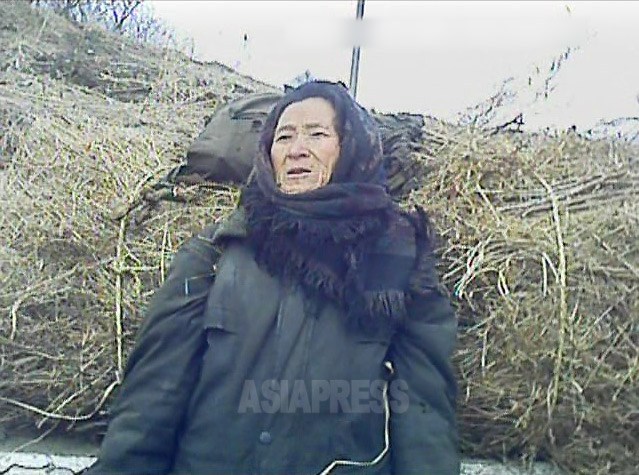
Q1. How are the lives of the elderly around where you live in 2024?
“A”: During COVID in 2022, many elderly people died. They (typically) aren’t able to get enough food, so by the time they become 65, they fall sick. Elderly people who can earn a little money by going out and picking ears of corn, work at a (market) stall, stand on guard duty, or babysit other people's children are fine. If they can’t do those things, they’re just considered “sick” and they suffer from malnutrition. They seem to typically die within a month.
“B”: Except for cadres or those who have a little money, the elderly are treated as trouble in households where it is difficult to make a living. In such households, the elderly are almost akin to dead people. If they have good-hearted children, they can eat, but if they don't, they have to earn their own food, so they go around and beg for food, babysit, collect compost, (go out to the fields) to pick ears of corn, or dig rat holes (this refers to digging up rat holes in corn fields to collect the corn stored by rats).
If they can’t do even that, they end up becoming homeless wanderers. On March 10, ASIAPRESS surveyed one market in Wuiyon and found there were 12 homeless children and elderly people. Four of the homeless were elderly.
◆ “Elderly people died almost everyday due to COVID”
Q2. It’s been mentioned that many elderly people have died during the COVID period. What kind of situations did elderly people face during this period?
“A”: If they didn't eat properly and just got (COVID), they died. In April 2022, there were five to seven old people in front of the apartment chatting with each other, but after July and September, there were only one or two people who came out to sit and chat. That shows that a large number of elderly people died.
“B”: Every day (the bodies) were taken out. Since April 2022, there have been so many deaths that there were people waiting in the apartment to cremate the dead. They would send the (dead) old people away (to be cremated) in nice clothes and, after the bodies arrived at the crematorium, people would steal the clothes. That’s why families would guard the bodies.
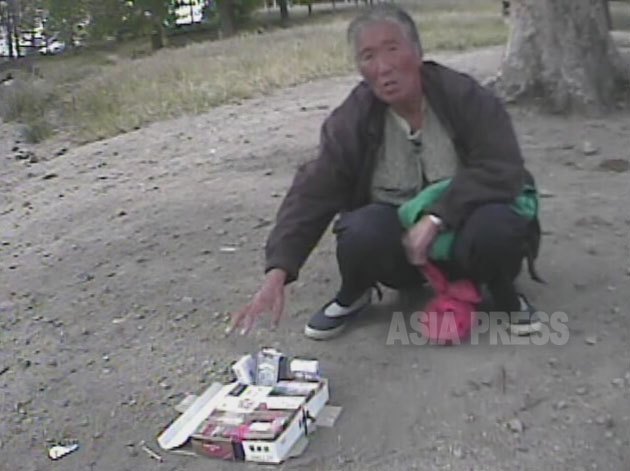
◆ North Korea’s collapsed free medical care system; the number of elderly on the streets has fallen dramatically
Q3. Are there any special medical benefits offered to elderly people to maintain their health?
“A”: They received healthcare just like everyone else. (The government) doesn’t do anything extra (for the elderly). If you're sick, you have to buy medicine. Getting hospitalized is out of the question, so you just suffer at home. The most common drug available is opium. Even if you get sick, the only people who go to the doctor are those who have power or money. Ordinary people rarely go to the hospital.
There’s an old man in my neighborhood who hasn't been properly diagnosed (by a doctor), so he doesn't know what he has. He’s using opium as a painkiller to get through the day, and I think he's going to die soon.
“B”: They rarely go to the hospital. Money is a problem and medicine is a problem. So, they just get sick and die. No old person can survive a month of illness because of malnutrition. Around me, there are very few old people over 70. There are a lot fewer elderly people on the streets as well.
*During the COVID pandemic, North Korea essentially abandoned its system of free medical care for its citizens. Hospitals now require people to pay to obtain medication. The sale of medicines by private individuals is now a focus of intense crackdowns by the government. That being said, reports suggest that hospitals use medicine they have to treat emergency cases where patients need immediate surgery.
According to Statistics Korea in December 2023, the estimated life expectancy for North Koreans is 71.9 years for men and 78.3 years for women. ( To 2 >> )
※ ASIAPRESS communicates with its reporting partners through Chinese cell phones smuggled into North Korea.
- <Inside N. Korea> Implementation of the large-scale restructuring of trading companies (1) Called “anti-socialist hotbeds,” government forces ‘bases’ of trading companies to close down and consolidate
- <Inside N. Korea> Regime tightens reigns on young people...A public trial and ideological struggle in February led to intensive attacks and forced participation in firing squads
- <Inside N. Korea> Workers frustrated by worsening workplace rations…Some call out company officials in rare rebuke
- <Inside N. Korea> Efforts to implement the“20x10 policy for regional development” begin…As people are mobilized to construction projects, complaints start to emerge
- <Inside N. Korea> Kim Jong-il birthday festivities smaller than in the past…special rations reduced due to lack of funds…focus more on labor mobilizations, with some events canceled
